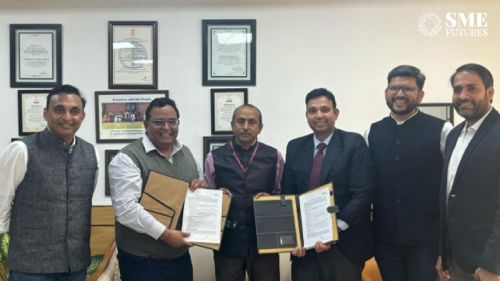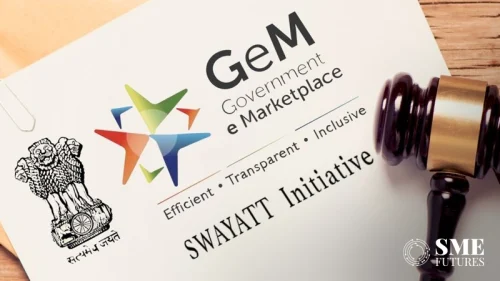Dun & Bradstreet, a B2B data, insights and AI-driven platform, released a whitepaper on “Business Dynamism in India” captures India’s business dynamism during the pandemic and its varied impact on businesses and sectors.
The whitepaper reveals that the manufacturing sector witnessed 39,539 registrations in FY21 compared to 26,406 in FY20, an increase of 13,133 firms or a growth rate of 50 per cent. While the agriculture sector observed 12,368 registrations in FY21 compared to 6,107 in FY20, the services sector also fared well with the highest number of registrations at 83,079 in FY21 and witnessed a growth rate of 14 per cent.
Dr Arun Singh, Global Chief Economist, Dun & Bradstreet said, “The pandemic has significantly altered how businesses conduct commerce. As a result, companies in India are becoming more dynamic, and competitive but the impact is varied. Some sectors such as manufacturing of food and kindred products, computer related services, educational services, etc. have witnessed a healthy growth in business registrations. On the other hand, sectors such as transportation services, repair services, restaurants, bars, etc. have contracted in business registrations due to social distancing measures. Another emerging trend is that the share of businesses being registered outside mainstream locations such as Mumbai, New Delhi, Bengaluru, Chennai, etc., is increasing. Top 10 cities accounted only for 42 per cent of all new business registrations in FY21 compared to 55 per cent in FY17. Various factors such as short product lifecycle, as in the case of agricultural products, non-tradeable consumables such as healthcare services, etc. could have necessitated business registrations where those products and services are consumed, given the logistics challenges during the pandemic”
Avinash Gupta, Managing Director & CEO – India, Dun & Bradstreet said, “While the pandemic changed the business landscape dramatically, it presented itself as an opportunity, and many businesses capitalized on the evolving trends, leading to an increase in business registrations. About 195,880 businesses were registered in FY21, a record high. Most of the newly registered businesses are concentrated in sectors that witnessed a pandemic-induced spike in demand and 96 per cent of the newly registered business had a paid-up capital of up to Rs 1 million. However, Dun & Bradstreet’s research reveals that the historical survival rates of businesses that fall in this category are low. Hence, businesses that partner with such ventures need to continuously monitor their portfolio and establish red flag alerts to protect their capital. At the same time, it is also important to note that as newer businesses are entering the market, survival becomes a challenge for the existing ones. They have to adapt to the upcoming trends to stay relevant or risk going out of business”
The key findings of the whitepaper tell us, that a total of 195,880 businesses were registered in FY21, which is a record high.
Birth rate of new businesses showed a healthy pace of increase from 7.8 per cent in FY16 to 10.2 per cent in FY20 and further to 11.6 per cent in FY21, despite the pandemic and subsequent waves of lockdown.
Agriculture sector recorded the highest growth in new business registrations at 103 per cent in FY21. The sector observed 12,368 registrations in FY21 compared to 6,107 in FY20. While manufacturing sector recorded the second highest growth in new business registrations at 50 per cent in FY21.
Subsectors such as agriculture production (crops), food and kindred products manufacturing, wholesale of non-durable goods, chemicals manufacturing, social services, educational services, and computer related services gained significant new registrations. Subsectors such as wholesale trade of durable goods, transportation services, repair services, restaurants, bars, etc. witnessed significant contraction in business registrations.
The share of businesses being registered outside mainstream locations such Mumbai, New Delhi, Bengaluru, Chennai, etc. is increasing. Top 10 cities accounted only for 42 per cent of new business registrations in FY21 compared to 55 per cent in FY17
96 per cent of the newly registered businesses had a paid-up capital of up to Rs 1 million. Historically, one in two companies in this category went out of business within four years of incorporation











